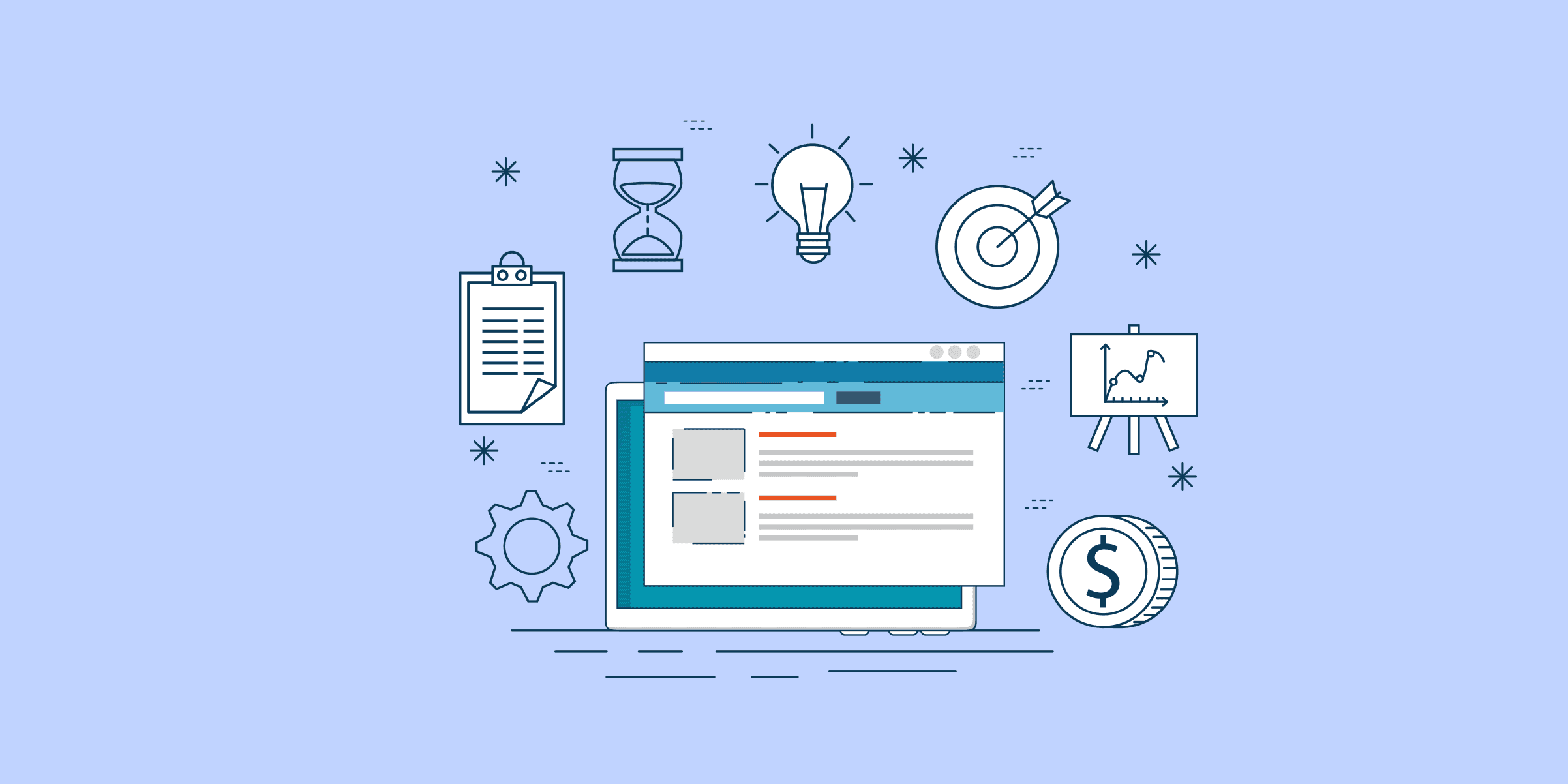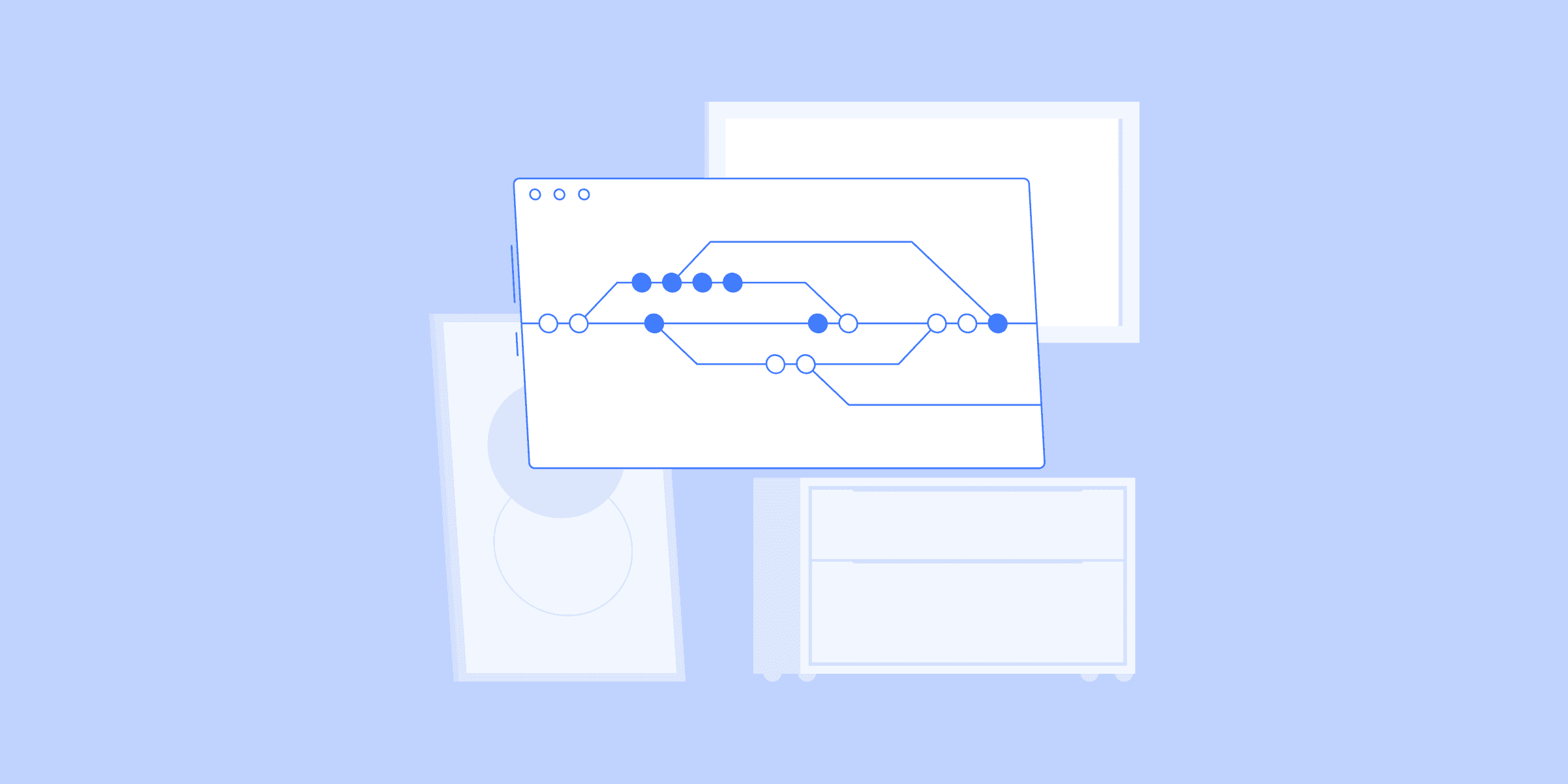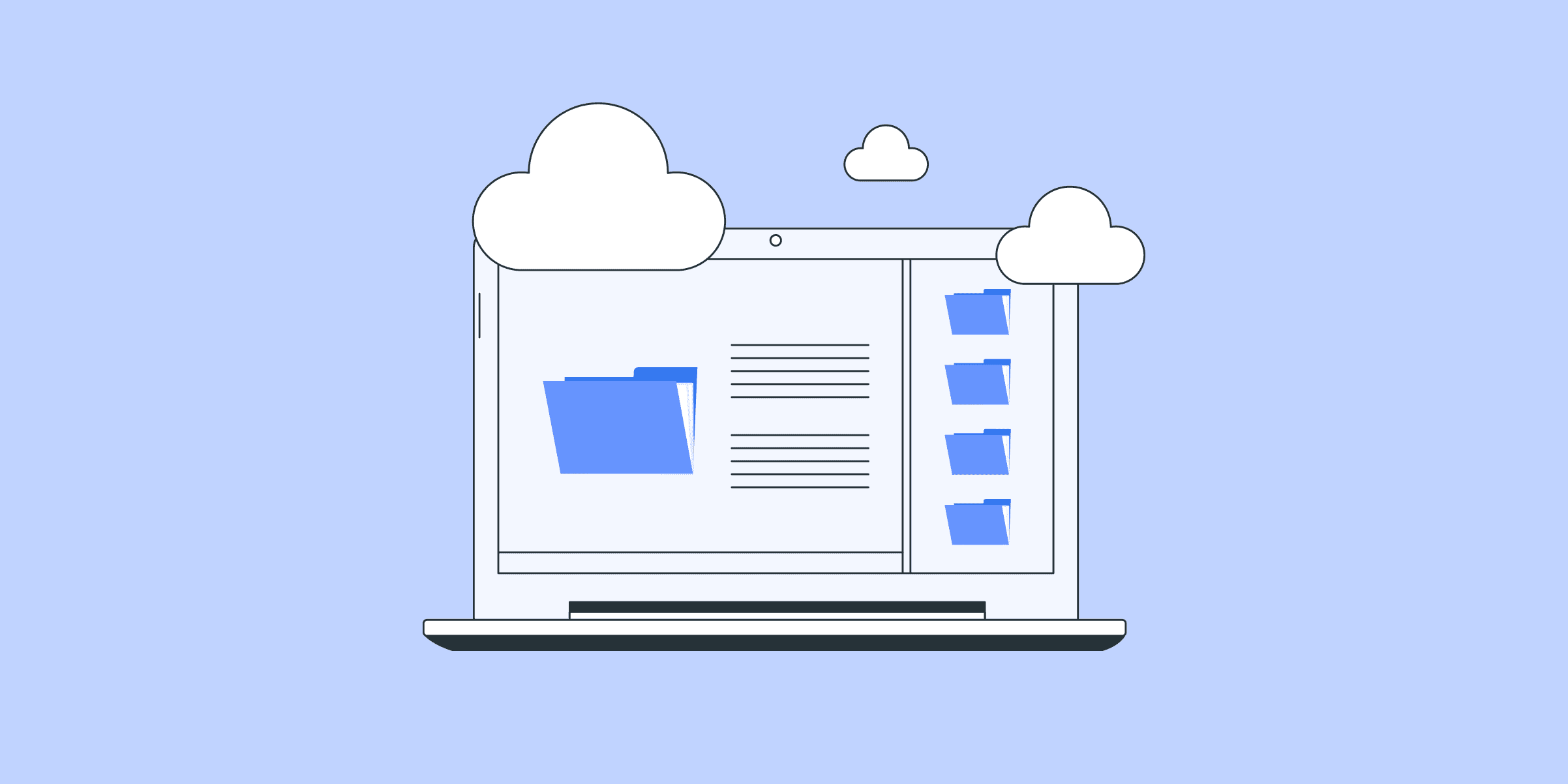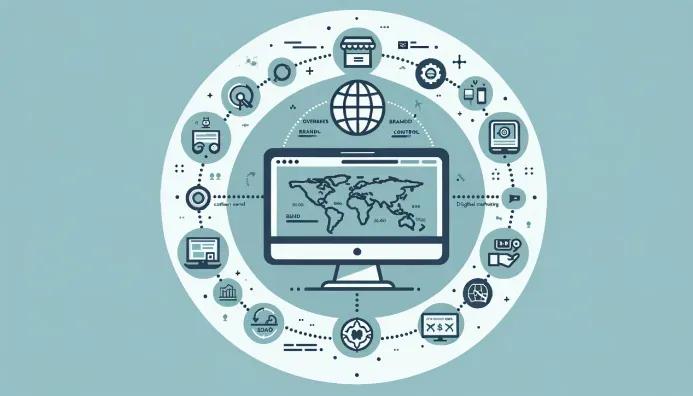住宅代理

Proxy Standards & Best Practices: Navigating Through Industry Guidelines
In the ever-evolving digital landscape, the use of proxy servers has become a cornerstone for businesses and individuals alike, offering anonymity, security, and efficiency in internet communications. However, as with any powerful tool, the effective and ethical use of proxies requires adherence to certain standards and best practices. This article delves into the foundational guidelines of proxy usage, highlighting the importance of following industry standards to ensure a secure, reliable, and respectful online environment.Understanding Proxy ServersA proxy server acts as an intermediary between a user's device and the internet, handling requests on behalf of the user. By doing so, it can mask the user's IP address, control access to websites, cache content for faster loading times, and protect against malicious traffic. Despite these benefits, improper use of proxy servers can lead to security vulnerabilities, ethical concerns, and legal issues. Hence, adhering to established standards and practices is crucial.Proxy Standards: The Foundation of Ethical UsageThe ethical use of proxy servers is pivotal in maintaining the delicate balance between leveraging the internet's vast resources for growth and ensuring the digital realm remains secure, private, and accessible for all. The foundation of ethical proxy usage is built on several key standards, each designed to promote a responsible and respectful online environment.Transparency and ConsentThe principle of transparency and consent lies at the heart of ethical proxy usage. In any setting, particularly within organizations, it is imperative that the deployment of proxies is communicated openly to all affected parties. This involves disclosing the existence of the proxy, explaining its purpose—be it for security, monitoring, or access control—and detailing how it processes and handles data.Expanding on Transparency:Transparency is not just about making users aware of the proxy's existence; it's about fostering an environment where users feel informed and respected. This includes providing clear policies on data collection, storage, and usage, and ensuring these policies are easily accessible for review. Furthermore, organizations should offer avenues for feedback and concerns, allowing users to express any discomfort or questions regarding the proxy's operation.Consent as a Cornerstone:Consent goes hand in hand with transparency. Users should have the option to consent to the proxy's operation, especially in cases where personal data is processed. In certain jurisdictions, this is not just best practice but a legal requirement under data protection laws like the GDPR in the European Union and the CCPA in California, USA. Obtaining explicit consent ensures that the use of proxy servers adheres to legal standards and respects user autonomy.Security ProtocolsThe integrity of proxy servers as secure intermediaries is non-negotiable. Utilizing secure protocols, such as HTTPS, plays a critical role in ensuring that data transmitted via the proxy is encrypted and protected from interception or tampering.Commitment to Security Audits:Regular security audits are essential to identify and rectify any vulnerabilities within the proxy server. These audits should be comprehensive, covering both the software and the underlying infrastructure, to ensure that no aspect of the proxy service poses a security risk. Keeping abreast of the latest security threats and ensuring that the proxy server is updated accordingly is paramount to maintaining a secure environment.Updates and Patch Management:The cyber landscape is continually evolving, with new vulnerabilities emerging regularly. As such, maintaining a schedule for regular updates and patch management is crucial. This includes updating the proxy server software and its dependencies to the latest versions, where security patches are often included. A proactive approach to security can significantly reduce the risk of breaches and cyber attacks.Authentication and Access ControlEffective authentication and access control mechanisms are vital to prevent unauthorized access to the proxy server. Strong password policies, the implementation of two-factor authentication (2FA), and meticulous management of user permissions are essential practices in securing a proxy server.Strong Password Policies:Implementing strong password policies ensures that access to the proxy server is tightly controlled. Passwords should be complex, regularly changed, and never reused across different services. Educating users on the importance of password security and providing tools to manage passwords effectively can further enhance security.Two-Factor Authentication (2FA):2FA adds an additional layer of security by requiring a second form of verification beyond just the password. This could be a text message, an email, an authenticator app code, or a biometric factor like a fingerprint. Implementing 2FA significantly reduces the risk of unauthorized access, even if a password is compromised.Permission Management:Careful management of user permissions ensures that individuals have access only to the necessary resources. This principle of least privilege minimizes the potential damage from a compromised account and limits the scope of access for any single user, thereby enhancing the overall security posture of the proxy server.Best Practices for Proxy UsageThe strategic deployment of proxy servers is essential for navigating the complexities of the internet securely and efficiently. Adhering to best practices in proxy usage not only enhances online privacy and security but also ensures compliance with legal and ethical standards. Below, we delve deeper into the nuances of these best practices, providing a comprehensive guide for individuals and organizations alike.1. Choosing the Right ProxyThe selection of the appropriate proxy type is a critical decision that should be tailored to the specific requirements of the user while adhering to ethical guidelines. This decision impacts not only the effectiveness of the proxy in meeting the user's needs but also the ethical implications of its use.Types of Proxies and Their Uses:- Residential Proxies: Offer IP addresses assigned by Internet Service Providers (ISPs) to homeowners, making them appear as legitimate individual users. They are ideal for tasks that require high levels of anonymity and are less likely to be blocked or detected as proxies. However, it's essential to source these proxies from reputable providers to ensure they are ethically obtained and do not exploit users' network connections.- Datacenter Proxies: These proxies provide IP addresses from data centers. They are faster and more affordable than residential proxies but can be more easily detected and blocked by websites due to their non-residential IP addresses. They are suitable for large-scale data scraping where high anonymity is not critical.- SOCKS5 Proxies: Offer a higher level of security and are suitable for sending data through proxy servers using any protocol. They are beneficial for torrenting or P2P sharing, where data security is a priority.- HTTP/S Proxies: Designed specifically for web browsing and handling HTTP or HTTPS traffic, these proxies are useful for general web scraping and browsing tasks.Ethical Considerations:Choosing a proxy type involves weighing the need for anonymity and functionality against ethical considerations. It's crucial to avoid proxies sourced from unethical practices, such as botnets or those that compromise unsuspecting users' internet connections.2. Rate Limiting and Respectful CrawlingImplementing rate limiting and engaging in respectful crawling practices are vital to maintaining the integrity of target websites and servers. These practices are especially important in web scraping and automated tasks to prevent overloading and potentially crashing the target servers.Implementing Rate Limiting:Rate limiting involves setting a cap on the number of requests sent to a website within a specific timeframe. This mimics human browsing behavior, reducing the likelihood of triggering anti-bot mechanisms or CAPTCHAs and ensuring that the website's normal operations are not disrupted.Respectful Crawling:Beyond rate limiting, respectful crawling encompasses:- Observing the website's `robots.txt` file for scraping guidelines.- Scheduling scraping activities during off-peak hours to minimize impact on the website's performance.- Avoiding scraping unnecessary data to reduce the load on the website's servers.3. Data Privacy and ComplianceAdhering to data privacy laws and guidelines is non-negotiable in the use of proxies. This entails several key practices:- Anonymizing Collected Data: Ensure that any data collected through proxies is anonymized to protect individuals' privacy.- Securing Stored Data: Implement robust security measures to safeguard any data stored, preventing unauthorized access and breaches.- Obtaining Necessary Permissions: Prior to collecting data, verify that all necessary permissions have been obtained, especially when dealing with personal or sensitive information, to ensure compliance with laws like GDPR.4. Regular Monitoring and MaintenanceThe cybersecurity landscape is dynamic, with new threats emerging constantly. Regular monitoring and maintenance of proxy servers are essential to identify and address vulnerabilities promptly.Continuous Monitoring:Monitor proxy servers for signs of unusual activity that could indicate a security breach or misuse. This includes spikes in traffic, unauthorized access attempts, and anomalies in data patterns.Scheduled Maintenance and Updates:Regularly update proxy server software and the underlying infrastructure to patch vulnerabilities and enhance functionality. Scheduled maintenance reduces downtime and ensures the proxy server operates at peak efficiency.The Importance of Adhering to StandardsFollowing these industry standards and best practices is not only about compliance but also about contributing to a safer, more ethical online ecosystem. By adhering to these guidelines, businesses and individuals can leverage the benefits of proxy servers while minimizing potential risks and ensuring respectful internet usage.ConclusionIn conclusion, the responsible use of proxy servers, guided by industry standards and best practices, is essential for maintaining security, privacy, and integrity in digital communications. Whether for personal privacy, corporate security, or data analysis, the ethical and informed use of proxies paves the way for a more secure and respectful digital world. As technology continues to advance, so too will the standards and practices governing its use, requiring ongoing vigilance and adaptation from all stakeholders in the digital community.

Unleashing the Educational Potential of ChatGPT through Proxy Servers: A New Horizon in Learning
In the evolving realm of education, where technology increasingly serves as a cornerstone for enriching learning experiences, the integration of advanced tools like ChatGPT into the classroom has sparked a significant conversation. Amid this digital renaissance, however, many educational institutions have erected barriers around internet accessibility, restricting access to potentially transformative resources like ChatGPT. This cautious approach, aimed at shielding students from the myriad distractions and potential pitfalls of the digital world, inadvertently stifles the vast educational potential these technologies harbor. This article explores the nuanced role of proxy servers in bridging this gap, facilitating ChatGPT's entry into educational settings, and unlocking its myriad benefits for students and educators alike.Understanding the Role of Proxy ServersProxy servers, in the digital age, function as the unsung heroes of internet accessibility and privacy. By acting as an intermediary between users and the web, they offer a dual service: concealing users' identities and providing access to a broader spectrum of knowledge. This dynamic serves not just as a bypass for internet restrictions but as a foundational pillar for equitable access to information.When a user connects to the internet via a proxy server, their requests are sent to the proxy, which then forwards these requests to the intended web servers. This means that to the outside world, the IP address of the proxy server is visible, not the user's. This simple yet profound mechanism has far-reaching implications for educational settings where access to information can be curtailed by network restrictions.The role of proxy servers extends beyond mere access; they serve as gatekeepers and facilitators of rich educational content. In an era where information is power, proxy servers empower students by unlocking doors to global knowledge bases, including advanced platforms like ChatGPT. This access is instrumental in leveling the playing field, ensuring that students from diverse backgrounds have the same opportunities to learn and explore the vast resources available online.The Educational Renaissance Through ChatGPT ProxiesThe integration of ChatGPT, accessed through proxy servers, into educational frameworks marks the dawn of a transformative era in learning. This revolution is not just about the accumulation of knowledge but about redefining the very essence of the educational journey. ChatGPT, with its sophisticated understanding of natural language, offers a bridge between students and the boundless realms of information and creativity.Enhancing Learning Opportunities: The advent of ChatGPT as an educational tool reimagines learning as a dynamic, interactive process. Students are no longer passive recipients of information but active participants in a dialog with an AI capable of guiding, explaining, and inspiring. This interactive model facilitates a more profound understanding of subjects, making learning a captivating experience. Whether it's breaking down complex scientific theories, offering historical insights, or inspiring a piece of creative writing, ChatGPT stands ready to assist students in their quest for knowledge, tailored to their pace and style of learning.Fostering Language Development:Language learning with ChatGPT through proxies opens a new dimension of linguistic exploration for students. The AI's capacity to understand, respond, and correct language in real-time provides learners with an immersive experience. This interactive engagement mimics the nuances of human conversation, making it an excellent tool for practicing pronunciation, vocabulary, and grammar. Moreover, the diversity of languages supported by ChatGPT means students can practice and learn languages far beyond the traditional classroom offerings, from the comfort of their school or home.Cultivating Problem Solving and Critical Thinking:ChatGPT’s role in enhancing critical thinking and problem-solving skills is perhaps one of its most valuable contributions to education. By posing questions, challenging assumptions, and presenting complex scenarios, ChatGPT encourages students to think critically and develop solutions. This process is invaluable in teaching students not just to accept information at face value but to engage deeply with content, evaluate evidence, and formulate reasoned arguments. The AI's ability to provide feedback and alternative perspectives enriches this learning process, ensuring that students not only find answers but understand the rationale behind them.Navigating the Digital Landscape ResponsiblyThe introduction of proxy servers into the educational realm, particularly for accessing advanced AI tools like ChatGPT, presents a groundbreaking opportunity to enrich learning. However, this technological leap also necessitates a mindful and principled approach to its utilization. The essence of responsibly navigating this digital landscape lies in the conscious adherence to a set of ethical standards and institutional policies designed to guide students' online conduct.Ethical integrity and respect for the framework of educational institutions form the cornerstone of responsible digital navigation. Students are encouraged to employ ChatGPT proxies as a means to enhance their learning experience, exploring the vast potential of AI to supplement their studies, research, and creative endeavors. The objective is to utilize these technologies to expand one's intellectual horizons and not as a shortcut to bypass academic challenges or commitments.Moreover, the responsible use of proxy servers and ChatGPT extends beyond adhering to rules; it encompasses a broader commitment to academic honesty and intellectual curiosity. Students are tasked with the responsibility to engage with digital resources in a manner that enriches their understanding, encourages genuine exploration, and contributes positively to their academic and personal growth. This includes recognizing the value of original thought, the importance of critical analysis, and the pursuit of knowledge for its own sake, rather than merely as a means to an end.Educational institutions play a pivotal role in guiding students through this digital terrain by setting clear policies, providing education on digital ethics, and fostering an environment that encourages ethical online behavior. This includes educating students on the appropriate use of AI and proxy servers, highlighting the importance of digital footprints, and instilling a sense of responsibility towards the use of online resources.Addressing the Risks: A Balanced ApproachThe integration of generative AI, such as ChatGPT, into educational settings brings to light a myriad of social, ethical, and security challenges that demand careful consideration. As these technologies become more embedded in the educational process, institutions are faced with the task of navigating a landscape filled with both unprecedented opportunities and significant risks.One of the primary concerns revolves around academic dishonesty. The ease with which students can generate essays, reports, and answers to complex questions using ChatGPT poses a risk to the integrity of academic work. Additionally, there's the challenge of ensuring that students do not become overly reliant on AI for their learning, potentially hindering the development of critical thinking and problem-solving skills.To mitigate these risks, educational institutions must adopt a balanced approach that embraces the benefits of ChatGPT while addressing its potential pitfalls. This involves establishing comprehensive guidelines that delineate acceptable uses of AI in academic work, incorporating discussions about academic integrity into the curriculum, and encouraging students to use AI as a supplementary tool rather than a primary source of information.Promoting digital literacy is another crucial aspect of this approach. By equipping students with the skills to critically evaluate digital content and understand the underlying mechanisms of AI technologies, educators can foster a more informed and discerning use of ChatGPT and similar tools. This includes teaching students about the limitations of AI, the importance of verifying information, and the value of engaging deeply with subject matter.Moreover, schools should encourage critical engagement with technology, prompting students to question and explore the ethical implications of AI, understand its impact on society, and consider the responsibilities that come with its use. Through dialogue, debate, and exploration, students can develop a nuanced understanding of how AI can be harnessed to support their educational goals while being mindful of its broader societal effects.Conclusion: Charting the Future of EducationThe integration of proxy servers to facilitate access to ChatGPT within educational settings represents a critical step toward redefining the learning experience. By unlocking the full potential of this advanced linguistic model, students gain access to a world of interactive learning opportunities, enhanced language practice, and enriched problem-solving exercises. As we navigate this digital frontier, the onus is on both educators and students to embrace these technologies responsibly, ensuring that the digital transformation of education proceeds in a manner that is secure, ethical, and aligned with the overarching mission of education: to enlighten, empower, and inspire.

Proxy Monitoring & Logging: Ensuring Transparency and Efficiency in Proxy Usage
In the contemporary digital landscape, proxies play a pivotal role in enhancing online privacy, security, and access to information. Whether it's for individual privacy purposes, enterprise-level cybersecurity, or large-scale web scraping operations, the effective management of proxy services is fundamental. Central to this management is the process of proxy monitoring and logging, a practice that not only ensures operational transparency but also optimizes the efficiency and security of proxy usage. This comprehensive article explores the intricacies of proxy monitoring and logging, highlighting its importance, implementation strategies, and best practices for keeping track of proxy usage.The Importance of Proxy Monitoring and LoggingSecurity and ComplianceIn the realm of digital operations, the security of network transactions and the compliance with data protection regulations stand as paramount concerns for any organization. The strategic implementation of proxy monitoring and logging plays a crucial role in this context, serving as both a shield and a sentinel against the myriad threats lurking in the digital shadows.Enhanced Security Posture: Monitoring and logging activities through proxies provide an essential layer of security by enabling real-time surveillance of network traffic. This continuous oversight allows IT security teams to swiftly identify suspicious activities, such as unusual data flow patterns or access requests from blacklisted IP addresses, which could signify potential security breaches. Early detection is critical, as it facilitates prompt responses to mitigate risks before they escalate into full-blown cyber attacks.Compliance with Data Protection Laws: With the advent of stringent data protection regulations like the General Data Protection Regulation (GDPR) in Europe and the California Consumer Privacy Act (CCPA) in the United States, organizations are under increased pressure to ensure the privacy and security of personal data. Proxy logs play a vital role in this effort by providing a detailed account of data transactions and access events. This documentation is indispensable for demonstrating compliance with legal standards, particularly during audits or investigations, where proof of adherence to data handling and privacy protocols is required.Performance OptimizationProxy servers are pivotal in managing the flow of internet traffic, acting as intermediaries that can cache content, filter requests, and balance loads to enhance user experience. Monitoring and logging these proxy operations yield valuable insights into network performance, highlighting areas for improvement and optimization.Identifying and Resolving Bottlenecks: By analyzing proxy logs, IT teams can pinpoint performance bottlenecks, such as overloaded servers or inefficient routing paths, that may be hindering network speed and accessibility. This intelligence allows for targeted adjustments to proxy configurations, such as redistributing traffic loads or upgrading server capabilities, to alleviate congestion and enhance performance.Load Balancing and High Availability: Through the strategic analysis of proxy usage data, organizations can better manage load balancing, ensuring that no single server bears too much burden. This not only optimizes network performance but also contributes to high availability, minimizing downtime and ensuring that users have consistent access to the services they need.Cost ManagementFor organizations utilizing paid proxy services, especially those engaged in data-intensive operations like web scraping, digital marketing, or large-scale data analysis, monitoring and logging are indispensable tools for effective cost management.Optimizing Resource Allocation: Detailed logs provide insights into data usage patterns, enabling organizations to adjust their proxy service subscriptions according to actual needs. This can result in significant cost savings, as resources are scaled appropriately, avoiding overpayment for unnecessary bandwidth or server capacity.Informed Decision-Making: The data gleaned from proxy logs aids in making informed decisions regarding the procurement of additional proxy services or the discontinuation of underutilized ones. This strategic approach to resource management ensures that financial investments in proxy services are fully justified and aligned with the organization's operational requirements.Accountability and AuditingIn a corporate environment, ensuring that users adhere to organizational policies and ethical standards in their internet activities is crucial. Proxy monitoring and logging serve as effective mechanisms for promoting accountability and facilitating auditing processes.Tracking Internet Usage: Proxy logs provide a comprehensive record of user activities, including websites visited, resources accessed, and data transferred. This visibility allows organizations to enforce acceptable use policies, ensuring that employees utilize network resources appropriately and do not engage in prohibited activities.Facilitating Investigations: In the event of a security incident or policy violation, proxy logs offer invaluable forensic evidence that can be analyzed to understand the sequence of events, identify the parties involved, and determine the scope of the issue. This detailed information is critical for conducting thorough investigations, taking corrective actions, and, if necessary, complying with legal obligations to report breaches.Implementing Proxy Monitoring and LoggingChoosing the Right ToolsThe foundation of effective proxy monitoring and logging lies in selecting the appropriate tools that align with your organization's needs. The digital market today is flush with options, ranging from basic software that tracks rudimentary internet usage to sophisticated systems equipped with advanced features like real-time analytics, alerting mechanisms, and customizable dashboards.Assessing Organizational Needs: The choice of tool should be dictated by a thorough assessment of your organization's requirements. Factors to consider include the scale of your proxy operations (e.g., small-scale internal use vs. large-scale external deployment), the specificity of information you need to log (basic access logs vs. detailed transaction logs), and whether there's a need for real-time monitoring to immediately flag and respond to potential issues.Feature Set Evaluation: When evaluating potential tools, prioritize those that offer scalability, user-friendly interfaces, customizable log settings, and robust support for different proxy protocols. Additionally, consider the security features of the tool itself, such as encryption of log data and secure authentication methods for access.Cost vs. Benefit Analysis: While feature-rich platforms may seem attractive, it's crucial to perform a cost-benefit analysis. Opt for tools that offer the best value, considering both the initial investment and the long-term operational costs.Configuring Log DetailsThe granularity of log details is crucial for insightful monitoring and logging. Organizations must strike a balance between capturing comprehensive data for security and performance analysis and respecting user privacy.Determining Log Granularity: Essential log details typically encompass timestamps, source and destination IPs, URLs accessed, data volumes, session durations, and any encountered errors or anomalies. Deciding on the granularity involves understanding the depth of insight required for effective monitoring and the potential impact on storage and processing resources.Privacy Compliance: In configuring log details, it’s imperative to align with privacy laws and ethical considerations. This may involve anonymizing personally identifiable information (PII) within the logs and ensuring that the collection and storage of data are compliant with regulations like GDPR and CCPA.Establishing Policies and ProceduresA robust framework of policies and procedures is the backbone of successful proxy monitoring and logging. Clearly defined guidelines ensure that logging practices are consistent, transparent, and aligned with organizational goals and legal requirements.Policy Development: Develop comprehensive policies that outline the scope of monitoring, the types of data logged, retention policies, and access controls. These policies should address the objectives of logging, whether for security, compliance, or performance optimization, and detail the measures taken to protect logged data.Procedure Implementation: Establish procedures for regular log analysis, incident response based on log data, and routine audits of the logging system. Procedures should also cover the process for updating logging configurations to adapt to evolving organizational needs or in response to discovered inefficiencies or vulnerabilities.Best Practices for Proxy Monitoring and LoggingRegular Reviews and AuditsThe dynamic nature of internet traffic and cyber threats necessitates regular reviews and audits of proxy logs. These practices are critical for identifying emerging trends, detecting anomalies, and refining proxy configurations to enhance security and performance.Scheduled Log Reviews: Implement a schedule for regular log reviews, leveraging automated tools for trend analysis and anomaly detection where possible. This proactive approach allows for the early detection of potential issues and the opportunity to mitigate them before they escalate.Comprehensive Audits: Conduct comprehensive audits periodically to assess the effectiveness of the logging strategy, verify compliance with established policies, and ensure that logging practices remain aligned with organizational objectives and legal requirements.Secure Storage and Access ControlGiven that logs can contain sensitive data, securing stored logs and controlling access to them are paramount. Employ encryption to protect log data at rest and in transit, and implement stringent access controls to ensure that only authorized personnel can view or manipulate the logs.Encryption and Security: Utilize strong encryption standards to secure log data, protecting against unauthorized access and ensuring the confidentiality and integrity of the information.Access Management: Define clear access policies, leveraging role-based access controls (RBAC) to restrict log access based on the principle of least privilege. Regularly review access permissions to ensure they remain appropriate for each user’s role and responsibilities.Integration with Other Security SystemsEnhancing the efficacy of proxy monitoring and logging often involves integrating these systems with the broader security infrastructure. This integration enables a unified view of the security posture, facilitating a coordinated response to identified threats.System Interoperability: Ensure that the chosen proxy monitoring tools can integrate seamlessly with existing security systems, such as firewalls, IDS, and SIEM platforms. This interoperability is crucial for correlating data across systems, enhancing the detection of sophisticated attacks, and streamlining response efforts.Legal Compliance and Privacy ProtectionIn the complex landscape of data protection regulations, adhering to legal requirements and protecting user privacy are non-negotiable. Incorporate practices that ensure compliance and safeguard privacy, such as data anonymization and minimization, into the proxy monitoring and logging strategy.Regulatory Alignment: Stay abreast of relevant privacy laws and regulations, and ensure that logging practices are designed to maintain compliance. This may involve conducting regular legal reviews and adjusting logging practices as necessary to accommodate new regulations or guidance.Privacy-First Approach: Adopt a privacy-first approach in logging practices, collecting only the data necessary for the stated purposes and anonymizing data where possible to protect individual privacy.ConclusionProxy monitoring and logging are indispensable practices for organizations aiming to maximize the benefits of proxy usage while ensuring security, compliance, and operational efficiency. By implementing robust monitoring and logging systems, organizations can gain valuable insights into their proxy operations, make informed decisions, and maintain a strong stance on privacy and security in the digital age. As the reliance on proxies continues to grow, so does the importance of these practices in supporting a secure and efficient online presence.

How to install LIKE.TG Proxy on MacOS?
Please note that before installing IP2 S5 Manager, please set your security and privacy status to accept downloads from anywhere.Step 1Download the LIKE.TG S5 Manager.Step 2Installing IP2 S5 Manager.The following problems may occur during installation: Q: “IP2 S5 Manager” can't be opened because Apple cannot check it for malicious software.A: Open your Systerm Settings, click Privacy Security, then click Open Anyway or Anywhere.Q:Can't find Anywhere in Privacy Security?A: Open a terminal and enter the command: sudo spctl –master-disable, then just click Return, enter your password and click Return again.Step 3 Open IP2 S5 Manger, use your proxy.

LIKE.TG & Nstbrowser — All-in-one Anti-Detect Browser for Web Scraping and Multi-Account Management
In an era where digital identity and privacy stand at the forefront of online interaction, the strategic partnership between LIKE.TG andNstBrowsermarks a significant leap forward. This collaboration combines LIKE.TG’s robust global proxy solutions with Nstbrowser’s cutting-edge anti-detect browser technology, offering a comprehensive toolset designed for professionals navigating the complex digital landscape. Nstbrowser, tailored for managing multiple accounts and excelling in web scraping, automation, and profile management, integrates seamlessly with LIKE.TG's diverse proxy services. This partnership not only enhances the user experience by simplifying proxy management but also elevates the standard for online privacy and efficiency. Through this innovative union, users gain access to unparalleled web scraping capabilities and advanced management tools, ensuring each account operates under a unique digital fingerprint, thus circumventing common hurdles like account bans and restrictions. This introduction sets the stage for a detailed exploration of Nstbrowser’s features, its role in the modern digital toolkit, and the transformative impact of its integration with LIKE.TG’s proxy solutions.NstBrowserNstbrowser emerges as a groundbreaking anti-detect browser tailored for professionals managing multiple accounts. This advanced platform is engineered to offer unmatched capabilities in web scraping, automation, and profile management. Thanks to its compatibility with leading web automation frameworks such as Puppeteer, Playwright, and Selenium, Nstbrowser integrates seamlessly with proxy management and unlocking technologies, ensuring a smooth and uninterrupted user experience.Understanding Antidetect BrowsersBefore exploring the expansive feature set of Nstbrowser, it's essential to grasp the concept of an antidetect browser. In the digital world, managing numerous accounts across different platforms can often trigger account bans, primarily due to platform policies against operating multiple accounts. These platforms detect multiple accounts through browser fingerprints, which collect data about your device, like IP address, screen resolution, and system fonts, uniquely identifying users online. Using multiple accounts from a single device can lead platforms to flag them as duplicates.Antidetect browsers come to the rescue in such scenarios. These browsers enable the creation of multiple browser profiles, each endowed with a unique digital fingerprint. This feature allows users to mask their real online identity, presenting each account as operated by distinct users, thus bypassing potential account restrictions.The Need for an Antidetect BrowserAntidetect browsers are vital in scenarios requiring the discreet management of multiple accounts. They prove indispensable in:- Affiliate Marketing: They allow marketers to use multiple accounts to expand reach and opportunity.- Online Advertising: Advertisers can increase exposure and conversion chances through varied ad placements.- E-commerce: Sellers can manage multiple accounts on a single platform without fear of bans.- Bounty Airdrop: Participants can manage multiple accounts to receive cryptocurrency tokens without detection.- Web Scraping: These browsers camouflage scraping bots as legitimate users for more efficient data harvesting.- Market Research: Researchers gain a broader, undistorted market view without personalized content restrictions.- Privacy and Anonymity: For sensitive research and browsing, they offer enhanced anonymity, protecting users from tracking.- Digital Agencies: They enable the separate and secure management of client accounts and campaigns.- Multi-Account Operations: Users can manage numerous social media or e-commerce accounts simultaneously without detection.- Data Collection for AI: They facilitate the collection of diverse datasets essential for training sophisticated AI models.Additional Capabilities and Standout Features of NstbrowserNstbrowser not only prevents account bans but also offers additional benefits such as teamwork features, automation to save hours on routine tasks, centralized account management without extra tools, and a user-friendly interface supported by a community for troubleshooting.What sets Nstbrowser apart are its key features designed for anonymity and ease in managing multiple accounts:- Browser Fingerprint Management: It allows for the setting of unique digital fingerprints for each browser window.- Multi-Account Management: Users can efficiently manage multiple accounts with batch import/export and task creation.- Automated Operations: Built-in automation features enhance productivity.- Team Collaboration: Roles and permissions can be assigned for team-based operations.- Cookie Management: Custom cookies can be inserted for seamless account management.- Competitive Pricing: Nstbrowser is cost-effective, offering essential features even in its free version.Key Features Include:- Compatibility with Automation Frameworks: It supports Puppeteer, Playwright, and Selenium for easy integration into projects.- Built-in Proxy Management: Sophisticated proxy management capabilities allow users to bypass geo-restrictions and anti-bot measures.- Advanced Unlocking Technology: Equipped with technology to navigate through captchas and sophisticated website protections.- Multi-Account Management: Designed for professionals requiring the management of multiple accounts or profiles.Documentation and IntegrationNstbrowser provides comprehensive guides for integrating with Puppeteer and Selenium, showcasing how to connect to launched browsers, launch and connect to browsers with specific profiles, and create and connect to browsers with custom configurations.To get started with Nstbrowser and leverage its full potential in your web scraping and automation workflows, visit Nstbrowser’s official website for more information on features, pricing, and integration processes. As a leap forward in web automation technology, Nstbrowser equips developers, QA engineers, and data scientists with the advanced capabilities needed to navigate the complexities of the modern web with ease and efficiency.

Navigating the Mobile Landscape: Proxy Considerations for the Mobile Environment
In today's digital age, where the boundaries between the physical and virtual worlds are increasingly blurred, mobile devices have become the primary gateway to the internet for billions of users worldwide. As we navigate through this mobile-centric landscape, the importance of maintaining security, privacy, and efficiency in our digital interactions has never been more pronounced. Proxies, long utilized within desktop environments to safeguard privacy and enhance connectivity, are now increasingly pivotal in the mobile ecosystem. This article explores the unique considerations and challenges of utilizing proxies within a mobile environment, offering insights into how to effectively leverage these tools to secure mobile internet access and enhance user experience.Understanding Mobile ProxiesA proxy server acts as an intermediary between a mobile device and the rest of the internet. This setup allows for the redirection of internet traffic, enabling anonymity, bypassing geo-restrictions, improving security, and accelerating content delivery. However, the mobile environment introduces specific considerations that must be addressed to optimize the use of proxies.Mobile-Specific Proxy Considerations1. Network Variability: Unlike stationary desktop environments, mobile devices constantly switch networks, moving from Wi-Fi to various mobile data networks (3G, 4G, LTE, 5G). Proxies used in mobile environments must seamlessly handle these transitions without disrupting the user's internet session or compromising security.2. Battery Life: Mobile devices are constrained by battery life. Proxies, especially those that encrypt data, can increase the processing power required for internet activities, thereby impacting battery consumption. Optimizing proxy solutions for low energy consumption is crucial for maintaining device usability.3. Performance and Speed: Mobile users demand fast, responsive internet access. High-latency proxies can significantly degrade the user experience. Mobile proxies need to offer low latency and high throughput to keep up with the demands of video streaming, online gaming, and other bandwidth-intensive activities.4. Security Challenges: Mobile devices often connect to public Wi-Fi networks, which are notorious for security vulnerabilities. Proxies in a mobile environment must provide robust encryption and security features to protect against these risks, safeguarding data from interception, man-in-the-middle attacks, and other cyber threats.5. Configuration and Management: The diversity of mobile operating systems (iOS, Android, etc.) and the plethora of mobile applications complicate the configuration and management of proxy settings. Solutions need to be user-friendly, allowing for easy setup and automatic configuration to ensure widespread adoption and effectiveness.6. Content Adaptation: Mobile devices display content differently from desktops, often requiring data compression and optimization for small screens. Proxies should ideally offer content adaptation features, ensuring that web pages load quickly and efficiently on mobile devices.Leveraging Mobile Proxies for Enhanced Security and AccessibilityIn the realm of mobile internet usage, where security threats loom and accessibility demands are high, leveraging mobile proxies becomes not just a strategy but a necessity. The proper use of mobile proxies, coupled with an understanding of secure protocols, selecting the right proxy providers, and optimizing for performance, can dramatically enhance both security and accessibility for mobile users. Let’s delve deeper into these aspects to understand how they can be maximized to their fullest potential.Implementing Secure ProtocolsThe cornerstone of utilizing mobile proxies effectively lies in the implementation of secure proxy protocols. Among these, SOCKS5 and HTTPS stand out for their robustness and reliability.SOCKS5 Protocol: SOCKS5, the latest version of the SOCKS protocol, offers a level of encryption that makes your data transfers over mobile networks more secure. It supports both TCP and UDP connections, thus providing a versatile solution that is compatible with various types of internet traffic, including VOIP and FTP. By routing your mobile device’s internet connection through a SOCKS5 proxy, you can enjoy an enhanced layer of security, minimizing the risk of data breaches and eavesdropping. Its ability to bypass internet blocks and filters also ensures greater accessibility to content that might be restricted on a mobile network.HTTPS Protocol:HTTPS proxies encrypt and secure HTTP requests, creating a secure browsing environment for mobile users. By encrypting the data in transit, HTTPS proxies protect sensitive information such as login credentials, banking details, and personal data from potential interceptors. This is particularly important when connecting to public Wi-Fi networks, which are more susceptible to security threats. The use of HTTPS proxies is crucial for maintaining the confidentiality and integrity of your mobile communications, providing peace of mind and a safer browsing experience.Choosing the Right Proxy ProviderThe effectiveness of mobile proxies greatly depends on the quality of the proxy provider. A provider that specializes in dedicated mobile proxies and understands the intricacies of mobile internet usage can significantly enhance your mobile web experience.Specialization in Mobile Proxies:Providers offering dedicated mobile proxies that simulate real mobile IP addresses are invaluable. These IPs are less likely to be identified as proxies by websites and services, thereby reducing the risk of being blocked or flagged. This is especially beneficial for users engaging in activities that require high anonymity, such as competitive research, social media management, and geo-sensitive access to content.Understanding Mobile Nuances:A proxy provider with a deep understanding of the mobile landscape can offer solutions tailored to mobile-specific challenges. This includes dynamic IP rotation to mimic natural user behavior, custom headers to match mobile web requests, and optimized routing to ensure the best possible speed and reliability on mobile networks.Optimizing for PerformancePerformance optimization is key to a satisfactory mobile proxy experience. The speed and responsiveness of mobile internet connections can be greatly affected by the choice of proxy service.Global Server Locations: By choosing a proxy service with servers strategically located around the world, you can connect to a server that is geographically closer to your actual location or the location of the content you are trying to access. This proximity reduces the distance data has to travel, thereby decreasing latency, improving loading times, and enhancing the overall browsing experience.Performance-Enhanced Infrastructure:Look for proxy services that invest in high-quality infrastructure and advanced technologies. This includes the use of SSD drives for faster data processing, high-bandwidth connections to handle large volumes of traffic, and state-of-the-art encryption methods to secure data without compromising speed.Customizable Proxy Settings:Advanced proxy services offer customizable settings that allow users to fine-tune their proxy setup according to their specific needs. This can include adjusting timeout settings, selecting specific IP rotation intervals, and choosing between different levels of concurrency. These customizations can help optimize performance, ensuring that the proxy service complements rather than hinders your mobile activities.ConclusionAs the mobile environment continues to evolve, the role of proxies in ensuring secure, private, and unrestricted access to the internet becomes increasingly critical. By understanding and addressing the unique challenges and considerations of mobile proxies, users and organizations can significantly enhance their mobile internet experience. Whether for personal privacy, professional research, or secure communication, mobile proxies stand at the forefront of navigating the complex, dynamic landscape of mobile internet usage. In this ever-connected world, embracing the right proxy solutions can empower users to navigate the mobile web with confidence and security.

Avoiding CAPTCHAs with Proxies: Navigating Through Digital Checkpoints
In the digital world, CAPTCHAs represent the toll booths on the superhighway of internet traffic, designed to distinguish human users from bots. While CAPTCHAs serve a crucial role in protecting websites from spam and automated abuse, they can also be a significant hurdle for legitimate users and developers working on web scraping, data analysis, and automated testing. This article delves into how proxies can be used to navigate these digital checkpoints, offering strategies to bypass CAPTCHAs without compromising on ethics or legality.Understanding CAPTCHAsCAPTCHA stands for Completely Automated Public Turing test to tell Computers and Humans Apart. It is a challenge-response test used in computing to determine whether the user is human. CAPTCHAs come in various forms, from image-based puzzles and text-based challenges to more advanced audio CAPTCHAs and interactive tasks.The Role of Proxies in Bypassing CAPTCHAsProxies act as intermediaries between the user and the web, masking the user's original IP address and allowing for requests to appear as if they come from different locations. This ability to obscure the true source of web traffic is key in bypassing CAPTCHA mechanisms, especially when dealing with IP-based rate limiting or blocking.Advanced Techniques to Bypass CAPTCHAs Using ProxiesNavigating through CAPTCHAs effectively requires a nuanced understanding of different techniques and how they can be applied using proxies. Below, we delve deeper into each method, offering a comprehensive guide to bypassing CAPTCHAs with sophistication and efficiency.1. IP Rotation: Mastering the Art of DisguiseIP rotation stands as a cornerstone technique in the world of proxy use, especially for bypassing CAPTCHAs. This method involves using a pool of proxies to frequently change the IP address from which requests are made. The fundamental advantage of IP rotation is its ability to mimic the behavior of numerous users accessing a website from diverse geographic locations, thereby significantly reducing the risk of tripping CAPTCHA mechanisms designed to flag suspicious activity originating from a single IP address.Strategic IP Rotation: Implementing an effective IP rotation strategy requires a dynamic pool of IP addresses that can be rotated based on predefined criteria such as request count, time intervals, or triggered CAPTCHA occurrences. Advanced proxy managers can automate this process, ensuring seamless rotation without manual intervention.Balancing Request Volume: To maximize the effectiveness of IP rotation, it's crucial to balance the volume of requests sent through each proxy. Distributing requests evenly across the IP pool prevents any single proxy from becoming overburdened and potentially flagged for excessive activity.2. Residential Proxies: Blending in with Legitimate TrafficResidential proxies are the secret agents of the proxy world, offering IP addresses that are indistinguishable from those of actual residential internet users. These proxies are allocated by ISPs to homeowners, thus carrying an inherent trust that is less likely to be challenged by CAPTCHA mechanisms.Seamless Integration: The seamless integration of residential proxies into your browsing strategy can significantly diminish CAPTCHA encounters. Websites perceive requests routed through residential proxies as coming from genuine users, thereby maintaining fluid access without the interruption of CAPTCHA verifications.Diverse Geographic Coverage: Leveraging residential proxies from a wide range of geographic locations further enhances this technique's effectiveness. It not only aids in bypassing geo-restrictions but also dilutes the footprint of automated requests, making them appear more human-like and scattered across various regions.3. Smart CAPTCHA Recognition Tools: Automating the SolutionThe integration of CAPTCHA recognition tools with proxy rotation presents an automated approach to solving CAPTCHAs as they arise. These tools, powered by OCR and AI technologies, are designed to interpret and solve CAPTCHAs in real-time, thus allowing for uninterrupted data collection or web scraping activities.Ethical Use and Limitations: While CAPTCHA solvers can be incredibly efficient, their use must be tempered with ethical considerations and compliance with legal standards. They should be employed in scenarios where CAPTCHA solving does not infringe on the website's terms of service or violate privacy regulations.Choosing the Right Tool: The market offers a variety of CAPTCHA recognition tools, each with its strengths and weaknesses. Selecting a tool that offers high accuracy rates and is compatible with your proxy setup is crucial for achieving the best results.4. Geo-targeting: Strategic Location SelectionGeo-targeting involves using proxies from specific geographic locations less likely to encounter CAPTCHAs. This technique is based on the understanding that certain websites may employ more stringent CAPTCHA measures for traffic coming from regions known for high levels of automated activity or cyber threats.Selective Proxy Deployment: By carefully selecting proxies from regions with a lower risk profile, users can significantly reduce the frequency of CAPTCHA challenges. This approach requires an understanding of the target website's security measures and the geographic distribution of its user base.5. Timing and Throttling Requests: Mimicking Human BehaviorTiming and throttling requests are crucial for maintaining a low profile when navigating through websites protected by CAPTCHA mechanisms. By introducing deliberate delays between requests and mimicking the browsing patterns of a typical human user, automated systems can avoid detection and subsequent CAPTCHA prompts.Adaptive Request Throttling: Developing an adaptive throttling mechanism that can adjust request intervals based on website response and CAPTCHA occurrence can further refine this technique. Incorporating randomization in the timing of requests adds another layer of human-like behavior, making automated activities less detectable.Ethical Considerations and Best PracticesWhile bypassing CAPTCHAs can be crucial for certain legitimate activities, it is essential to navigate this landscape ethically and legally. Always respect the intentions behind CAPTCHAs—protecting websites from spam and abuse. Ensure your activities do not violate terms of service or laws, and consider the impact of your actions on the target website.1. Respect Website Terms of Service:Before attempting to bypass CAPTCHAs, review the website’s terms of service to ensure compliance with their rules regarding automated access.2. Limit Requests:Even when using proxies, maintain a reasonable rate of requests to not overload the website’s resources.3. Transparency:When possible, inform website administrators of your intentions, especially if conducting research or data collection that could benefit the public or the website itself.ConclusionProxies offer a powerful tool for navigating the CAPTCHA-laden landscapes of the internet, enabling smoother operations for web scraping, automated testing, and other legitimate activities. However, the key to successfully avoiding CAPTCHAs lies in the strategic use of IP rotation, selecting the right types of proxies, and adhering to ethical guidelines. By balancing innovation with integrity, we can ensure that our digital explorations are both effective and respectful of the online ecosystems we navigate.

How to configure Data Center Proxies?
Step 1Buy a data center proxy ip and wait 1 minute for it to arrive your account.You can find the purchased IP in the Dedicated DC Panel.Step 2Please select how you want to use the IP: Whitelist or User+Pass Authentication.If you want to use Whitelist, please choose port 2000. If you want to use User+Pass Authentication, please choose port 2333.Step 3If you choose whitelist authentication, please add your current ip to IP Allowlist.If you choose User+Pass Authentication, please add a sub-account to Auth-User List.Step 4Use your proxy on your device.

The Role of Residential IPs in Survey Research
About realm of survey research, obtaining accurate and reliable data is paramount. Researchers employ various methodologies to ensure the integrity of their findings, and one such method gaining prominence is the utilization of residential IPs (Internet Protocol addresses). Residential IPs play a crucial role in survey research, particularly in ensuring representative and diverse participant samples. In this blog post, we'll delve into the significance of residential IPs in survey research and how they contribute to the validity of study outcomes.Understanding Residential IPsBefore delving into their role in survey research, let's first understand what residential IPs entail. Residential IPs are IP addresses assigned to residential internet users by Internet Service Providers (ISPs). Unlike datacenter IPs, which are associated with servers and often used for automated tasks, residential IPs are linked to real households, providing a more authentic online presence.Ensuring Sample RepresentationOne of the primary challenges in survey research is obtaining a sample that accurately reflects the population under study. Residential IPs facilitate this process by enabling researchers to reach individuals across various demographic backgrounds, geographical locations, and internet service providers. By accessing a diverse pool of respondents, researchers can mitigate selection bias and ensure the generalizability of their findings.Overcoming Geographic LimitationsGeographical diversity is crucial in survey research, especially when studying regional differences or conducting multinational studies. Residential IPs allow researchers to target specific geographic regions or countries, ensuring that the sample adequately represents the population of interest. This geographical flexibility enhances the external validity of the study and enables researchers to draw meaningful conclusions applicable to different regions.Minimizing Fraudulent ResponsesAnother advantage of using residential IPs in survey research is the mitigation of fraudulent responses. Residential IPs are associated with real households, making it more difficult for individuals to manipulate or falsify their identities. This helps maintain the integrity of the data and ensures that responses are genuine, contributing to the reliability of the study outcomes.Enhancing Data QualityThe use of residential IPs also contributes to the overall quality of the data collected in surveys. By reaching genuine residential users, researchers can access individuals who are more likely to provide thoughtful and accurate responses. This leads to higher-quality data, which is essential for making informed decisions and drawing valid conclusions from the research findings.Residential IPs play a crucial role in survey research by facilitating sample representation, overcoming geographic limitations, minimizing fraudulent responses, and enhancing data quality. Researchers rely on residential IPs to access diverse and authentic participant samples, ensuring the validity and reliability of their study outcomes. As survey research continues to evolve, the utilization of residential IPs will remain integral to conducting high-quality and impactful research across various domains.

Unveiling the Power of Static Proxy IPs: Enhancing Gaming Performance with Speed and Stability
In the world of online gaming, where split-second decisions and lightning-fast reflexes can mean the difference between victory and defeat, having a reliable and high-speed internet connection is paramount. However, for gamers facing geographical restrictions, bandwidth throttling, or connectivity issues, achieving optimal gaming performance can be a daunting challenge. Enter static proxy IPs – the unsung heroes revolutionizing the gaming experience by offering unparalleled speed and stability across all types of games. Let's explore why static proxy IPs are indispensable for gamers and how they elevate the gaming experience to new heights.Consistent Performance Across All Games: Whether you're immersed in the fast-paced action of first-person shooters, navigating the strategic depths of multiplayer online battle arenas (MOBAs), or exploring vast open-world adventures, static proxy IPs deliver consistent and reliable performance across all gaming genres. By providing a dedicated IP address that remains unchanged throughout your gaming session, static proxies ensure seamless connectivity and minimal latency, regardless of the game you're playing.Overcoming Geographical Restrictions: Many online games implement region-based restrictions, limiting access to certain servers or game content based on the player's geographical location. Static proxy IPs empower gamers to bypass these restrictions by masking their true IP address with that of the proxy server, allowing them to connect to game servers located anywhere in the world. This enables access to exclusive content, regional servers with lower latency, and international gaming communities, enriching the gaming experience and broadening horizons.Mitigating Bandwidth Throttling: Bandwidth throttling, imposed by internet service providers (ISPs) to manage network congestion or prioritize certain types of traffic, can severely impact gaming performance, leading to lag spikes, packet loss, and frustrating gameplay experiences. Static proxy IPs mitigate bandwidth throttling by optimizing data routing and circumventing ISP-imposed limitations, ensuring a smooth and uninterrupted gaming experience with consistent speed and stability.Protecting Against DDoS Attacks: Distributed Denial of Service (DDoS) attacks pose a significant threat to online gamers, disrupting gameplay, causing server outages, and compromising personal information. Static proxy IPs act as a shield against DDoS attacks by hiding the player's real IP address, making it difficult for attackers to pinpoint their location or target them with malicious traffic. This enhances security and peace of mind, allowing gamers to focus on what they do best – mastering their favorite games without fear of interruption.Optimizing Multi-Account Management: For gamers juggling multiple accounts across different gaming platforms or regions, static proxy IPs offer a convenient solution for account management and maintenance. By assigning a unique static IP address to each gaming account, players can easily switch between accounts without the need for constant authentication or verification, streamlining the gaming experience and maximizing efficiency.In conclusion, static proxy IPs emerge as indispensable allies for gamers seeking to elevate their gaming performance to new heights. With their ability to deliver high-speed, stable connectivity across all types of games, while overcoming geographical restrictions, mitigating bandwidth throttling, protecting against DDoS attacks, and optimizing multi-account management, static proxies empower gamers to unlock the full potential of their gaming experience. Embracing this innovative technology is not just a choice but a strategic imperative for those aspiring to dominate the virtual battlegrounds and emerge victorious in the ever-evolving world of online gaming.

The Role of Residential IPs in Social Media
Now where connections are made, ideas are shared, and trends are born, the role of residential IPs (Internet Protocol addresses) is becoming increasingly significant. Residential IPs, assigned to individual households by Internet Service Providers (ISPs), wield considerable influence in shaping user experiences and driving engagement on social media platforms. In this blog post, we'll explore the multifaceted role of residential IPs in social media and how they contribute to both user interactions and data analytics.Enabling Authentic EngagementAuthenticity is the cornerstone of successful social media interactions. Residential IPs provide users with genuine online identities, fostering authentic engagements with friends, followers, and communities. Unlike datacenter IPs, which are often associated with automated activities, residential IPs represent real households, lending credibility to user interactions and content sharing on social media platforms.Enhancing Content PersonalizationPersonalized content is key to capturing and retaining audience interest on social media. Residential IPs enable platforms to deliver tailored content based on users' geographical locations, interests, and online behaviors. By leveraging residential IPs, social media algorithms can better understand user preferences and serve up relevant content, enhancing the overall user experience and increasing engagement levels.Facilitating Market Research and InsightsFor businesses and marketers, social media serves as a goldmine of consumer insights and market trends. Residential IPs play a crucial role in gathering accurate and representative data for market research purposes. By analyzing user interactions, sentiment, and demographic information linked to residential IPs, businesses can gain valuable insights into consumer behavior, preferences, and purchasing intentions, guiding their marketing strategies and decision-making processes.Mitigating Security RisksSecurity and privacy concerns loom large in the realm of social media. Residential IPs offer an added layer of security by masking users' true IP addresses and providing a degree of anonymity online. This helps protect users from potential cyber threats, including hacking, identity theft, and unauthorized access to personal information. Additionally, residential IPs contribute to maintaining the integrity of social media platforms by reducing the prevalence of spam accounts and fraudulent activities.Residential IPs play a pivotal role in shaping the landscape of social media, influencing user engagement, content personalization, market research, and security measures. As social media platforms continue to evolve and expand, the significance of residential IPs in optimizing user experiences and driving meaningful interactions cannot be overstated. By harnessing the power of residential IPs, both users and businesses can unlock new opportunities for connection, innovation, and insights in the dynamic world of social media.

Addressing IP Display Issues with LIKE.TG Proxy
In the dynamic realm of online business and data management, encountering challenges related to IP visibility and access is not uncommon. Fortunately, solutions like LIKE.TG Proxy offer robust assistance in resolving such issues and ensuring seamless operations.LIKE.TG Proxy serves as a versatile tool for businesses and individuals grappling with IP-related obstacles. Whether it's overcoming regional restrictions, maintaining anonymity, or ensuring reliable access to online resources, this proxy service delivers comprehensive solutions tailored to diverse needs.One prominent benefit of LIKE.TG Proxy is its ability to bypass geo-blocking restrictions imposed by websites or online platforms. By masking the user's real IP address with a proxy IP from a different geographic location, this service enables access to content and resources that may otherwise be inaccessible due to regional restrictions or censorship.Furthermore, LIKE.TG Proxy plays a crucial role in safeguarding user privacy and anonymity online. In an era marked by growing concerns over data privacy and online surveillance, the ability to conceal one's real IP address is invaluable. Whether for personal browsing or professional tasks requiring discretion, this proxy service offers a layer of anonymity that enhances user security and confidentiality.Moreover, businesses relying on web scraping, data mining, or competitive intelligence gathering can benefit significantly from LIKE.TG Proxy. By rotating proxy IPs and distributing requests across a diverse network of IP addresses, this service helps mitigate the risk of IP bans or blocks while facilitating uninterrupted data collection and analysis.Additionally, LIKE.TG Proxy enhances the reliability and stability of online connections by offering a pool of high-quality proxy IPs with optimized performance characteristics. Users can enjoy faster browsing speeds, reduced latency, and improved overall connectivity, thereby enhancing productivity and efficiency in their online activities.In conclusion, LIKE.TG Proxy emerges as a valuable ally for individuals and businesses seeking to overcome IP-related challenges and maximize their online capabilities. Whether it's circumventing geo-blocking restrictions, preserving privacy, or optimizing data access and reliability, this versatile proxy service offers tailored solutions that empower users to navigate the digital landscape with confidence and efficiency.

Leveraging Residential Proxy IPs for Enhanced Performance in Sports Shoes Business
In today's hyper-competitive digital landscape, businesses, especially those in the sports shoes industry, are constantly seeking innovative strategies to gain a competitive edge. Among these strategies, the utilization of residential proxy IPs stands out as a game-changer, offering a myriad of advantages that can significantly elevate the performance of businesses in this sector. Let's delve into why residential proxy IPs are the preferred choice and how they can revolutionize the sports shoes business.\Unrivaled Anonymity and Security: Residential proxy IPs provide an unparalleled level of anonymity and security, crucial for businesses engaged in online activities. By masking the real IP address with that of a residential user, businesses can conduct their operations discreetly, safeguarding sensitive information such as pricing strategies, inventory levels, and marketing tactics from prying competitors and malicious actors.Effortless Geo-Targeting: The sports shoes market is global, with diverse consumer preferences and trends varying from one region to another. Residential proxy IPs enable businesses to effortlessly penetrate different geographical markets by allowing them to appear as local entities. This facilitates geo-targeted advertising campaigns, localized content delivery, and accurate market analysis, thereby enhancing customer engagement and driving sales.Bypassing Restrictions and Anti-bot Measures: Many e-commerce platforms and websites implementing anti-bot measures can pose significant challenges for businesses, hindering their ability to collect data, conduct market research, and monitor competitor activities. Residential proxy IPs circumvent these restrictions by mimicking genuine user behavior, enabling businesses to access valuable insights and stay ahead of the competition without being detected.Enhanced Web Scraping Capabilities: Web scraping is an indispensable tool for gathering crucial data on product pricing, customer reviews, and market trends. Residential proxy IPs excel in this domain by allowing businesses to scrape data from various sources at scale, without triggering security mechanisms or IP bans. This enables dynamic pricing strategies, real-time competitor analysis, and informed decision-making, empowering businesses to adapt swiftly to market fluctuations.Optimized Sneaker Bot Performance: The sports shoes industry is notorious for its limited edition releases and high-demand sneaker drops, often leading to fierce competition among sneaker enthusiasts and resellers. Residential proxy IPs optimize sneaker bot performance by distributing tasks across multiple IP addresses, reducing the risk of detection and increasing the chances of securing coveted items during online releases. This is particularly advantageous for businesses engaged in sneaker resale, enabling them to capitalize on lucrative opportunities and maximize profits.Maintaining Brand Reputation and Integrity: In an era where brand reputation is paramount, businesses must uphold integrity and authenticity in their online activities. Residential proxy IPs facilitate ethical data collection practices by ensuring compliance with website terms of service and respecting server resources. By maintaining a positive online presence and fostering trust among consumers, businesses can safeguard their brand reputation and foster long-term customer loyalty.In conclusion, the adoption of residential proxy IPs offers a plethora of advantages for businesses operating in the sports shoes industry, ranging from enhanced anonymity and security to optimized web scraping capabilities and improved sneaker bot performance. By harnessing the power of residential proxy IPs, businesses can gain a competitive edge, expand their market reach, and thrive in the dynamic landscape of online retail. Embracing this innovative technology is not just a choice but a necessity for those aspiring to stay ahead in the race for success.

Assessing the Effectiveness of Residential Proxy IPs for Business Needs
Residential proxy IPs have become essential tools for businesses engaged in web scraping, data analysis, and online marketing. However, choosing the right residential proxy IP that aligns with your business requirements can be a challenging task. In this article, we delve into the methods for confirming and testing residential proxy IPs to ascertain their suitability for your business endeavors, and explore which type of residential proxy IP might offer superior advantages.Understanding the Role of Residential Proxy IPs:Residential proxy IPs are IP addresses assigned to homeowners by Internet Service Providers (ISPs). They serve as intermediaries between your device and the internet, masking your actual IP address and providing a residential identity to your online activities. This anonymity is crucial for tasks requiring undetected data extraction or region-specific access.Key Considerations in Selection:Geographic Location: Depending on your business objectives, the geographical location of the residential proxy IPs may be paramount. Ensure the provider offers IPs from regions relevant to your operations.IP Rotation: Opt for providers offering frequent IP rotation to evade detection and avoid IP blocking by target websites.Connection Speed: Test the connection speed of the residential proxy IPs to ensure it meets your performance expectations, especially for time-sensitive tasks.Reliability and Uptime: Choose a provider known for reliability and minimal downtime to maintain uninterrupted operations.Customer Support: Responsive customer support is essential for troubleshooting and resolving any issues promptly.Testing Residential Proxy IPs:Trial Periods: Take advantage of trial periods or money-back guarantees offered by providers to assess the performance of their residential proxy IPs.Performance Testing: Conduct comprehensive performance tests, including response times, success rates, and error monitoring, to gauge the reliability of the proxy IPs.Compatibility Check: Ensure the residential proxy IPs are compatible with the tools and applications integral to your business operations.Scalability Evaluation: Consider the scalability of the residential proxy solution to accommodate your future growth without compromising performance or incurring additional costs.Types of Residential Proxy IPs:Dedicated Residential Proxies: These proxies offer exclusive access to a single IP address, providing enhanced stability, security, and control over usage.Shared Residential Proxies: Shared proxies are used by multiple users simultaneously, offering cost-effectiveness but potentially compromising reliability and security due to higher usage and traffic.Selecting the appropriate residential proxy IP is pivotal for businesses reliant on web data extraction, online anonymity, or geo-targeting. By considering factors such as location, IP rotation, connection speed, reliability, and customer support, coupled with thorough testing, businesses can identify the most suitable residential proxy solution. Whether opting for dedicated or shared residential proxies, prioritize performance, security, and scalability to seamlessly integrate them into your business operations.

Methods to Obtain Internal and External IP Addresses in Android Development
In Android development, obtaining the internal and external IP addresses of a mobile device can be crucial for various networking and communication functionalities. Internal IP addresses are used within a local network, while external IP addresses are utilized for communication over the internet. In this article, we will explore the methods to retrieve both the internal and external IP addresses in an Android application.Obtaining Internal IP Address:The internal IP address of a device is used for communication within a local network. To obtain the internal IP address in an Android application, we can utilize the following method:1. WifiManager:Android provides the WifiManager class, which allows us to access information about the Wi-Fi connection, including the internal IP address of the device. We can use the following code snippet to retrieve the internal IP address:```javaWifiManager wifiManager = (WifiManager) getApplicationContext().getSystemService(Context.WIFI_SERVICE);String ipAddress = Formatter.formatIpAddress(wifiManager.getConnectionInfo().getIpAddress());```By using the WifiManager class, we can obtain the internal IP address of the device connected to a Wi-Fi network.Obtaining External IP Address:The external IP address is used for communication over the internet. Obtaining the external IP address in an Android application can be achieved through the following methods:1. Using Web Services:There are various web services available that provide the external IP address of a device. We can make an HTTP request to these services and parse the response to obtain the external IP address. For example, we can use the following code to retrieve the external IP address from a web service:```javaURL url = new URL("https://api.ipify.org");HttpURLConnection connection = (HttpURLConnection) url.openConnection();BufferedReader reader = new BufferedReader(new InputStreamReader(connection.getInputStream()));String externalIP = reader.readLine();```By making an HTTP request to a web service such as 'https://api.ipify.org', we can retrieve the external IP address of the device.2. Using Third-Party Libraries:There are several third-party libraries available for Android that provide functionality to retrieve the external IP address. These libraries often encapsulate the logic for making HTTP requests and parsing the response, simplifying the process of obtaining the external IP address.In conclusion, obtaining both the internal and external IP addresses in an Android application is essential for various networking and communication tasks. By utilizing the methods mentioned above, developers can retrieve the internal and external IP addresses of a mobile device, enabling seamless communication within local networks as well as over the internet.

Revolutionizing Businesses: The Impact of Static Residential Proxy IPs
In the ever-evolving landscape of online business and digital marketing, staying ahead of the curve is imperative. One of the latest innovations making waves in the industry is the utilization of static residential proxy IPs. These IPs, once a niche tool reserved for tech-savvy individuals, are now becoming a game-changer for businesses across various sectors.So, what exactly is a static residential proxy IP? Simply put, it's a stable internet protocol (IP) address assigned to a physical location, typically a residential address. Unlike dynamic IPs that change each time a user connects to the internet, static residential IPs remain constant. This stability offers a plethora of benefits, particularly in the realm of online operations.One of the primary advantages of static residential proxy IPs is their role in enhancing online security and anonymity. With cyber threats on the rise, businesses are increasingly concerned about safeguarding their digital assets and sensitive information. Static residential proxies act as a shield, masking the true identity and location of users while they navigate the web. This not only protects against potential cyberattacks but also prevents unauthorized access to proprietary data.Moreover, static residential proxy IPs enable businesses to bypass geo-restrictions and access region-locked content. In today's globalized marketplace, this capability is invaluable for companies seeking to expand their reach and explore new markets. By connecting through proxies with IP addresses from specific geographic locations, businesses can conduct market research, launch targeted advertising campaigns, and analyze competitor strategies with ease.Another significant application of static residential proxy IPs is in web scraping and data aggregation. In an era where data drives decision-making, businesses rely on gathering information from various online sources to gain insights and maintain a competitive edge. Static residential proxies facilitate this process by providing a reliable means of collecting data without triggering security measures or being blocked by websites. Whether it's monitoring competitor prices, tracking market trends, or gathering customer feedback, businesses can leverage proxies to automate data retrieval tasks efficiently.Furthermore, static residential proxy IPs play a crucial role in search engine optimization (SEO) and digital marketing initiatives. By rotating through a pool of residential IPs, businesses can emulate organic user behavior and avoid detection by search engine algorithms. This ensures that their online activities, such as content scraping, keyword research, and ad verification, are conducted ethically and without repercussions. Additionally, static residential proxies enable marketers to conduct localized SEO campaigns, target specific demographics, and measure the effectiveness of their strategies accurately.In conclusion, the adoption of static residential proxy IPs is revolutionizing the way businesses operate in the digital realm. From enhancing security and anonymity to enabling access to geo-restricted content and facilitating data-driven decision-making, the benefits are manifold. As the online landscape continues to evolve, businesses that leverage static residential proxies will gain a competitive edge, adapt to emerging challenges, and thrive in an increasingly interconnected world.

Unveiling the Crucial Role of Proxy IPs in Web Data Crawling
In the digital age, where data reigns supreme, web data crawling has become an indispensable tool for businesses seeking to gain insights, track trends, and stay ahead of the competition. At the heart of this process lies the proxy IP—a key component that empowers crawlers to operate efficiently and effectively. In this article, we delve into the significance of proxy IPs for web data crawling and why they are essential for the success of such endeavors.Firstly, let's understand what web data crawling entails. Crawling, also known as web scraping, involves the automated extraction of data from websites across the internet. This data can range from product information and pricing details to news articles and social media posts. Crawlers, also referred to as bots or spiders, navigate the web, visiting web pages, and collecting relevant data based on predefined criteria.Now, why do crawlers need proxy IPs? The answer lies in the complexities of the online landscape and the challenges that crawlers encounter during their operations. Here are several reasons why proxy IPs are crucial for web data crawling:IP Blocking and Rate Limiting: Many websites employ measures to prevent excessive traffic or unauthorized access, such as IP blocking and rate limiting. When a crawler sends too many requests from a single IP address, it risks being blocked or throttled by the website's servers. Proxy IPs help mitigate this risk by distributing requests across multiple IP addresses, making it harder for websites to identify and block the crawler's activity.Geo-Restrictions: Certain websites may restrict access to users from specific geographic regions. For example, streaming platforms often limit content availability based on the user's location. Proxy IPs with geographically diverse locations allow crawlers to bypass these restrictions and access data from different regions, thereby expanding the scope of their operations.Anonymity and Security: Crawlers often need to navigate through websites anonymously to avoid detection or retaliation. Proxy IPs mask the crawler's true identity and location, providing a layer of anonymity that helps protect against IP tracking, data mining, and other forms of surveillance. Additionally, using proxies can enhance the security of the crawler's infrastructure by reducing the risk of exposing sensitive IP addresses to potential threats.Scalability and Performance: As web data crawling projects scale up, the demand for resources, such as bandwidth and IP addresses, increases accordingly. Proxy IPs offer a scalable solution by providing access to a pool of IP addresses that can be rotated or distributed dynamically. This ensures consistent performance and prevents overloading of any single IP address, thereby optimizing the crawling process.Ethical Considerations: Crawlers must adhere to ethical guidelines and respect the terms of service of the websites they scrape. Using proxy IPs responsibly can help crawlers avoid violating these terms and maintain a positive reputation within the online community. By rotating through a pool of proxies and adhering to rate limits, crawlers can operate in a manner that is both efficient and ethical.In summary, proxy IPs play a vital role in facilitating web data crawling by overcoming obstacles such as IP blocking, geo-restrictions, anonymity concerns, and scalability issues. By harnessing the power of proxy IPs, businesses and researchers can unlock valuable insights from the vast expanse of the internet, driving innovation, informed decision-making, and competitive advantage in today's data-driven world.

The Risks of Purchasing a Public IP Address
In today's digital age, the need for a stable and secure internet connection is paramount. Many individuals and businesses turn to purchasing public IP addresses to ensure reliable access to the internet. However, this practice comes with its own set of risks and considerations that should not be overlooked.First and foremost, it's important to understand what a public IP address is and how it differs from a private one. A public IP address is a unique identifier assigned to a device or network that is accessible from the internet. In contrast, a private IP address is used within a local area network (LAN) and is not directly accessible from the internet. When you purchase a public IP address, you are essentially leasing a unique internet-facing identifier for your device or network.One of the primary risks associated with purchasing a public IP address is the potential for security vulnerabilities. Public IP addresses are more susceptible to cyber attacks and unauthorized access compared to private ones. Hackers and malicious actors often target public IP addresses in their quest to compromise systems and steal sensitive information. Therefore, it is crucial to implement robust security measures such as firewalls, intrusion detection systems, and regular security audits when using a public IP address.Another risk to consider is the potential for blacklisting. Public IP addresses can be blacklisted by internet service providers (ISPs) or other organizations if they are associated with malicious activities such as spamming, phishing, or distributed denial-of-service (DDoS) attacks. If your purchased public IP address has been previously used for such activities, it may already be blacklisted, leading to connectivity issues and reputational damage.Furthermore, there is the risk of non-compliance with regional internet registry (RIR) policies. RIRs are responsible for the allocation and registration of IP addresses within specific geographic regions. When you purchase a public IP address, you must ensure that you are compliant with the policies and regulations set forth by the relevant RIR. Failure to do so could result in the revocation of the IP address and potential legal repercussions.In addition to security and compliance risks, there are also financial considerations to take into account when purchasing a public IP address. The cost of acquiring and maintaining a public IP address can vary depending on factors such as market demand, availability of IPv4 or IPv6 addresses, and the specific requirements of your internet service provider. It's important to weigh the financial investment against the potential benefits of having a public IP address for your particular use case.Despite these risks, there are legitimate reasons why purchasing a public IP address may be necessary for certain applications. For example, businesses may require public IP addresses for hosting web servers, running virtual private networks (VPNs), or enabling remote access to corporate resources. Similarly, individuals may opt for a public IP address to bypass geo-restrictions and access content that is not available in their region.Purchasing a public IP address does come with inherent risks that should not be underestimated. From security vulnerabilities and blacklisting concerns to compliance issues and financial considerations, there are several factors to carefully evaluate before deciding to acquire a public IP address. It's essential to weigh the potential benefits against the risks and take proactive measures to mitigate any potential downsides. By doing so, you can make an informed decision about whether purchasing a public IP address is the right choice for your specific needs.

Understanding the Difference Between Datacenter Proxies and Static ISP Proxies
In the realm of internet privacy and security, proxies play a vital role in masking users' identities and safeguarding their online activities. Two prominent types of proxies that are often compared are Datacenter Proxies and Static ISP (Internet Service Provider) Proxies. While both serve similar purposes, they operate differently and offer distinct advantages and limitations. In this blog post, we'll delve into the disparities between these two proxy types to help you understand which might be more suitable for your needs.Datacenter Proxies:Datacenter proxies are servers hosted in data centers, which act as intermediaries between users and the internet. These proxies are not associated with an internet service provider but are instead hosted by third-party companies. Here are some key characteristics of datacenter proxies:Speed and Reliability: Datacenter proxies are known for their high speed and reliability. Since they are hosted in data centers with robust infrastructure, they typically offer faster connection speeds compared to other proxy types.Cost-effectiveness: Datacenter proxies are generally more affordable than other types of proxies, making them a popular choice for businesses and individuals looking for cost-effective solutions for web scraping, SEO monitoring, and other activities that require proxy usage at scale.IP Rotation: Many datacenter proxy providers offer IP rotation capabilities, allowing users to switch between different IP addresses to avoid detection and maintain anonymity.Static ISP Proxies:Static ISP proxies, on the other hand, are proxies assigned by internet service providers to their users. Unlike datacenter proxies, which are hosted in centralized data centers, static ISP proxies are distributed across various locations and are associated with specific ISPs. Here are some distinguishing features of static ISP proxies:Authenticity: Static ISP proxies provide users with IP addresses that are directly associated with legitimate internet service providers. This can be advantageous in certain situations where websites or online services prioritize traffic from residential IP addresses, as static ISP proxies mimic real user behavior more accurately.Stability: Since static ISP proxies are associated with specific ISPs, they tend to offer greater stability and reliability compared to other types of proxies. However, the performance of static ISP proxies can vary depending on the quality of the ISP and its network infrastructure.Limited IP Pool: Unlike datacenter proxies, which often offer a wide range of IP addresses, static ISP proxies are limited to the IP addresses provided by the respective ISPs. This limitation may impact scalability, especially for users requiring a large number of unique IP addresses.In summary, while both datacenter proxies and static ISP proxies serve the purpose of masking users' identities and providing anonymity online, they differ in terms of speed, cost-effectiveness, authenticity, and IP availability. Choosing between the two depends on your specific requirements and priorities. If you prioritize speed, affordability, and IP rotation, datacenter proxies may be the preferred choice. On the other hand, if authenticity and stability are paramount, static ISP proxies could be the better option. Ultimately, understanding the nuances of each proxy type will help you make an informed decision based on your needs.

How to Identify the Quality of a Proxy IP
The use of proxy IPs has become increasingly common for various reasons, from anonymity and security to bypassing geo-restrictions. However, not all proxy IPs are created equal, and distinguishing between high-quality and low-quality ones is essential to ensure a smooth and secure browsing experience. Here are some key factors to consider when evaluating the quality of a proxy IP:Connection Speed: One of the most crucial aspects of a proxy IP is its connection speed. A high-quality proxy should offer fast and stable connections, minimizing latency and ensuring smooth data transfer. To assess connection speed, you can use online speed testing tools or simply browse websites to gauge performance.Reliability and Uptime: A reliable proxy IP should have minimal downtime and interruptions. Constantly experiencing connection drops or downtime can be frustrating and disruptive to your browsing activities. Look for proxies with high uptime guarantees and positive user reviews to ensure reliability.Location and Server Distribution: The geographical location of the proxy server plays a significant role, especially if you're using it to bypass geo-restrictions. A quality proxy service should offer a wide range of server locations across different countries and regions, allowing you to access content from anywhere in the world.Anonymity and Security Features: Anonymity and security are paramount when using a proxy IP. A good proxy should provide robust encryption protocols, such as SSL or TLS, to protect your data from interception and unauthorized access. Additionally, it should offer features like IP masking and DNS leak protection to ensure your online activities remain private.Data Transfer Limits and Bandwidth: Some proxy services impose data transfer limits or bandwidth restrictions, which can impact your browsing experience, especially if you frequently stream media or download large files. Opt for proxy IPs that offer unlimited bandwidth or generous data transfer allowances to avoid unnecessary limitations.Customer Support: In case you encounter any issues or have questions about the proxy service, responsive and knowledgeable customer support can make a significant difference. Look for proxy providers that offer timely support via multiple channels, such as live chat, email, or phone, to address your concerns effectively.Price and Value for Money: While cost shouldn't be the sole determining factor, it's essential to consider the pricing of the proxy service in relation to the features and performance it offers. Compare pricing plans and evaluate the value for money based on your specific needs and usage requirements.User Feedback and Reviews: Finally, don't overlook the importance of user feedback and reviews when assessing the quality of a proxy IP. Browse online forums, review websites, and social media platforms to see what other users are saying about their experiences with the proxy service. Pay attention to both positive and negative reviews to make an informed decision.Identifying the quality of a proxy IP requires careful consideration of various factors, including connection speed, reliability, security features, server distribution, and customer support. By evaluating these aspects comprehensively and conducting thorough research, you can choose a high-quality proxy service that meets your specific requirements and enhances your browsing experience.

Leveraging Residential Proxies to Boost WhatsApp Marketing
In today's digital landscape, WhatsApp has emerged as a powerful platform for marketing and communication, offering businesses a direct and personalized way to engage with their audience. However, as with any online endeavor, effective WhatsApp marketing requires the right tools and strategies. One such tool that can significantly enhance your WhatsApp marketing efforts is residential proxies. In this blog post, we'll explore how leveraging residential proxies can elevate your WhatsApp marketing game.Overcoming Restrictions and Bans:
WhatsApp imposes strict limitations on bulk messaging and may ban accounts that engage in spammy behavior. Residential proxies can help circumvent these restrictions by providing a pool of authentic IP addresses associated with real residential devices. By rotating through these proxies, marketers can send messages in a distributed manner, reducing the likelihood of triggering spam filters or getting banned.Geotargeting and Localized Marketing:
Residential proxies allow marketers to simulate their presence in different geographic locations by routing their traffic through IP addresses associated with specific regions. This capability enables geotargeting, allowing businesses to tailor their WhatsApp marketing campaigns to local audiences. Whether it's promoting localized offers, events, or content, residential proxies empower marketers to deliver messages that resonate with recipients based on their location and preferences.Enhanced Privacy and Security:
Unlike datacenter proxies, which are often flagged as suspicious due to their non-residential nature, residential proxies offer a higher level of privacy and security. Since residential proxies route traffic through genuine residential IP addresses, they are less likely to trigger suspicion from WhatsApp's security algorithms. This ensures a more seamless and uninterrupted marketing experience, reducing the risk of account bans or message delivery issues.Scalability and Flexibility:
Residential proxy networks typically boast a vast pool of IP addresses from diverse locations around the world. This scalability allows marketers to scale their WhatsApp marketing campaigns without worrying about exhausting IP resources or encountering IP address blacklisting issues. Additionally, residential proxies offer flexibility in terms of IP rotation and management, enabling marketers to optimize their messaging strategies for maximum effectiveness.Data Privacy Compliance:
With increasing scrutiny around data privacy and compliance regulations such as GDPR, using residential proxies can help businesses adhere to legal requirements while conducting WhatsApp marketing campaigns. By masking their IP addresses with residential proxies, marketers can protect the privacy of their customers' data and ensure compliance with relevant regulations, thereby mitigating the risk of legal repercussions or reputational damage.In conclusion, residential proxies serve as indispensable tools for businesses looking to elevate their WhatsApp marketing efforts. By providing access to authentic residential IP addresses, overcoming restrictions and bans, enabling geotargeting, enhancing privacy and security, facilitating scalability, and ensuring data privacy compliance, residential proxies empower marketers to reach their target audience effectively and ethically. Incorporating residential proxies into your WhatsApp marketing strategy can unlock new opportunities for engagement, conversion, and brand growth in an increasingly competitive digital landscape.

The Flexibility of Socks5 Proxies: Ideal for Diverse Data Crawling Needs
As the demand for scraping and crawling data from the internet continues to grow across various industries, having the right tools to meet diverse needs is paramount. Among these tools, Socks5 proxies stand out for their remarkable flexibility and suitability for a wide range of data crawling requirements. In this blog post, we'll delve into the versatility of Socks5 proxies and explore why they are the go-to choice for many data extraction tasks.Understanding Socks5 ProxiesSocks5 proxies, an extension of the Socks protocol, act as intermediaries between a client (such as a web browser or a web crawler) and a destination server. Unlike traditional HTTP proxies, Socks5 proxies can handle various types of traffic, including HTTP, HTTPS, FTP, and more. This flexibility makes them ideal for applications beyond simple web browsing, including data scraping, torrenting, gaming, and accessing geo-restricted content.Versatility of Socks5 ProxiesProtocol Agnosticism: Socks5 proxies are protocol-agnostic, meaning they can accommodate a wide range of internet protocols. Whether you're fetching web pages, downloading files via FTP, or streaming multimedia content, Socks5 proxies can handle it all with ease. This versatility makes them suitable for diverse data crawling needs across different platforms and services.Enhanced Security: Socks5 proxies offer enhanced security features compared to other proxy protocols. They support various authentication methods, including username/password authentication and IP-based authentication, ensuring that only authorized users can access the proxy server. Additionally, Socks5 proxies support encryption, providing an extra layer of security for sensitive data transmission.IP Address Flexibility: With Socks5 proxies, users have the flexibility to choose their desired IP address for each connection. This feature is particularly useful for data crawling tasks that require access to geo-restricted or region-specific content. By routing requests through proxies located in different regions, users can bypass censorship, access localized content, and gather valuable insights from diverse sources.Dynamic IP Rotation: Many Socks5 proxy providers offer dynamic IP rotation capabilities, allowing users to rotate IP addresses at regular intervals. This feature helps prevent IP blocking and detection by target websites, ensuring uninterrupted data crawling operations. By rotating IP addresses, users can distribute requests more evenly and avoid triggering rate limits or bans.Use Cases for Socks5 ProxiesWeb Scraping: Socks5 proxies are widely used for web scraping applications, enabling businesses to gather market intelligence, monitor competitor activities, and extract valuable data from websites.Data Mining: Socks5 proxies facilitate large-scale data mining operations, allowing researchers and analysts to collect, process, and analyze vast amounts of data from diverse sources.Content Aggregation: Socks5 proxies are essential for content aggregation platforms that aggregate information from multiple websites and present it in a unified format.Ad Verification: Socks5 proxies help advertisers verify the placement and visibility of their ads across different websites and geographical regions, ensuring compliance with advertising agreements and brand guidelines.ConclusionIn conclusion, the flexibility of Socks5 proxies makes them an indispensable tool for a wide range of data crawling needs. From web scraping and data mining to content aggregation and ad verification, Socks5 proxies offer unparalleled versatility, security, and reliability. By leveraging the power of Socks5 proxies, businesses, researchers, and developers can unlock valuable insights, drive informed decision-making, and stay ahead in today's data-driven world.

The Crucial Role of Rotating Proxies in Advertising Verification Business
Ad verification, the process of ensuring that ads are displayed correctly and reaching the intended audience, plays a crucial role in maintaining trust between advertisers and publishers. Within this sphere, rotating proxies emerge as a pivotal tool, offering a range of benefits that are indispensable for efficient and accurate ad verification.Rotating proxies, also known as rotating IP addresses, are a type of proxy server that automatically changes the IP address assigned to a user's connection at regular intervals or with each request. This rotation mechanism provides several advantages in the context of ad verification:Geographic Diversity: One of the primary benefits of rotating proxies is their ability to simulate diverse geographical locations. In ad verification, it's essential to verify that ads are being displayed correctly in different regions and demographics. Rotating proxies enable testers to emulate users from various locations, ensuring that ads are visible and functioning as intended across the target audience spectrum.Anonymity and Avoidance of Blocks: Ad verification often involves accessing multiple websites and platforms to monitor ad placements. However, frequent access from the same IP address can trigger security measures such as IP blocking. Rotating proxies mitigate this risk by cycling through different IP addresses, preventing detection and ensuring uninterrupted monitoring activities. Moreover, rotating proxies provide anonymity, protecting the identity of verification agents and reducing the likelihood of being flagged as suspicious or malicious users.Load Distribution and Scalability: Ad verification processes may involve handling a large volume of requests to assess ad performance across various channels and devices. Rotating proxies distribute these requests across multiple IP addresses, preventing overloading of any single server or network. This load distribution enhances scalability, allowing verification operations to accommodate growing demands without compromising performance or reliability.Mitigation of Ad Fraud: Ad fraud remains a significant concern in the digital advertising ecosystem, with fraudulent activities such as ad stacking, click fraud, and impression laundering undermining campaign effectiveness and wasting advertisers' budgets. Rotating proxies play a vital role in combating ad fraud by enabling continuous monitoring and detection of suspicious activities across different IP addresses. By simulating genuine user interactions from diverse locations, rotating proxies help identify anomalies and irregularities indicative of fraudulent behavior, empowering advertisers to take proactive measures to protect their investments.Enhanced Data Accuracy and Insights: Accurate data collection and analysis are essential for optimizing ad campaigns and maximizing ROI. Rotating proxies contribute to data accuracy by ensuring consistent and comprehensive monitoring of ad placements across various platforms and channels. By capturing data from different perspectives and demographics, rotating proxies provide advertisers with valuable insights into audience engagement, ad performance, and market trends, facilitating informed decision-making and campaign optimization strategies.Rotating proxies play a critical role in the effectiveness and integrity of ad verification operations in the digital advertising industry. By offering geographic diversity, anonymity, load distribution, fraud mitigation, and enhanced data accuracy, rotating proxies empower advertisers and verification agencies to ensure the authenticity and effectiveness of ad campaigns, fostering trust and transparency in the advertising ecosystem. As the digital landscape continues to evolve, leveraging rotating proxies will remain indispensable for maintaining the integrity and efficiency of ad verification processes.

Ensuring Proxies Perform as Expected: The Importance of Proxy Testing and Validation
In the dynamic landscape of internet connectivity and digital security, proxies play a crucial role in safeguarding privacy, ensuring reliable connections, and enabling access to geo-restricted content. However, the effectiveness of proxies hinges on their proper configuration and performance. Proxy testing and validation emerge as essential processes to verify that proxies function as intended, providing users with a seamless and secure online experience.Understanding Proxy Testing and ValidationProxy testing involves assessing the functionality, speed, reliability, and anonymity of proxies. It encompasses various tests and checks to ensure that proxies meet the required standards and specifications. On the other hand, proxy validation involves confirming the legitimacy and authenticity of proxies, verifying that they originate from legitimate sources and adhere to ethical and legal guidelines.The Importance of Proxy Testing1. Functionality Assessment: Proxy testing evaluates the core functions of proxies, such as IP address masking, protocol support (HTTP, HTTPS, SOCKS), and data encryption. It ensures that proxies effectively hide users' IP addresses and provide secure connections for browsing and data transmission.2. Speed and Performance Evaluation: Proxies should not only conceal IP addresses but also deliver fast and reliable connections. Testing proxies for speed and performance helps identify bottlenecks, latency issues, and network congestion, ensuring optimal browsing speeds and minimal disruptions.3. Anonymity Verification: Anonymity is a critical aspect of proxies, especially for users seeking privacy and security. Proxy testing verifies the level of anonymity offered by proxies, whether they are transparent, anonymous, or elite proxies, and assesses their ability to prevent IP tracking and data leakage.4. Compatibility Checks: Proxy testing includes compatibility checks with various devices, operating systems, browsers, and applications. It ensures that proxies seamlessly integrate with different platforms, allowing users to access blocked content and bypass restrictions across multiple devices.Proxy Validation: Ensuring Legitimacy and Ethics1. Source Verification: Proxy validation involves confirming the source of proxies and ensuring they originate from reputable providers or legitimate sources. It helps prevent the use of malicious or unauthorized proxies that may compromise users' security and privacy.2. Ethical Compliance: Validating proxies includes assessing their compliance with ethical standards, legal regulations, and terms of service. It ensures that proxies are used responsibly, ethically, and in alignment with applicable laws and guidelines.Best Practices for Proxy Testing and Validation1. Regular Testing: Conduct regular tests and checks to monitor the performance, reliability, and anonymity of proxies. Continuous testing helps identify issues promptly and ensures proxies operate optimally.2. Use of Testing Tools: Utilize proxy testing tools and software that offer comprehensive testing capabilities, including IP verification, speed testing, and anonymity checks. These tools automate the testing process and provide detailed reports for analysis.3. Data Security Measures: Implement robust data security measures during testing and validation to protect sensitive information and prevent unauthorized access. Use encrypted connections, secure protocols, and authentication mechanisms to safeguard proxy testing data.4. Documentation and Reporting: Maintain detailed documentation of proxy testing and validation results, including test parameters, outcomes, and any identified issues or improvements. Reporting helps track proxy performance over time and facilitates informed decision-making.ConclusionProxy testing and validation are fundamental processes in ensuring that proxies function effectively, securely, and ethically. By conducting comprehensive tests, verifying legitimacy, and adhering to best practices, users can leverage proxies with confidence, knowing that they provide reliable connectivity, protect privacy, and comply with ethical standards. Incorporating regular testing and validation into proxy management practices contributes to a seamless and secure online experience for users across various industries and applications.

The Speed Advantage of HTTP Proxies: How to Enhance Data Crawling Efficiency
Whether it's for market research, competitive analysis, or staying informed about industry trends, accessing relevant data efficiently is crucial. HTTP proxies play a vital role in this process, offering significant speed advantages for data crawling tasks. In this blog post, we'll explore the reasons behind the speed advantage of HTTP proxies and provide tips on how to enhance data crawling efficiency using them.Understanding HTTP ProxiesHTTP proxies act as intermediaries between clients (such as web browsers or web crawlers) and servers. When a client sends a request for a web resource, it is routed through the proxy server before reaching the destination server. The proxy server then forwards the request on behalf of the client and relays the response back.Speed Advantage of HTTP ProxiesCaching: One of the key advantages of HTTP proxies is caching. Proxies store copies of previously accessed resources locally. When a client requests a resource that has been cached, the proxy can serve it directly without having to fetch it from the original server again. This significantly reduces latency and speeds up the response time.Parallel Requests: HTTP proxies can make multiple requests to different servers simultaneously. By distributing the workload across multiple connections, proxies can fetch data more quickly than a single client making sequential requests.Bandwidth Optimization: Proxies can compress data before transmitting it to the client, reducing the amount of bandwidth required for each request. This optimization technique helps in speeding up data transfer, especially for large files or when dealing with limited bandwidth connections.Geolocation: Proxies allow users to access content from servers located in different geographical regions. By routing requests through proxies located closer to the target servers, users can reduce network latency and improve response times.Tips for Enhancing Data Crawling EfficiencyUse Dedicated Proxies: Consider using dedicated proxies for data crawling tasks. Dedicated proxies offer better performance and reliability compared to shared proxies, as they are not shared among multiple users.Rotate IP Addresses: Rotate IP addresses regularly to avoid getting blocked by target websites. Many proxies offer IP rotation functionality, allowing users to switch between different IP addresses at predefined intervals.Optimize Request Frequency: Adjust the frequency of requests to avoid overwhelming target servers. Too many requests in a short period can trigger rate limiting or IP bans. By optimizing request frequency, users can maintain a steady flow of data without risking detection or blockage.Implement Retry Mechanisms: Implement retry mechanisms to handle failed requests gracefully. Network issues or server errors can sometimes cause requests to fail. By automatically retrying failed requests with backoff strategies, users can improve data retrieval success rates.HTTP proxies offer significant speed advantages for data crawling tasks. By leveraging caching, parallel requests, bandwidth optimization, and geolocation capabilities, users can enhance data crawling efficiency and extract valuable insights from the web more effectively. With the right strategies and tools in place, data crawling becomes a streamlined process, empowering businesses and researchers to stay ahead in today's data-driven world.

































